
What We Loved This Week
The Lit Hub Staff on Mrs. Caliban, Jaws, Tom Cruise's oeuvre, and more
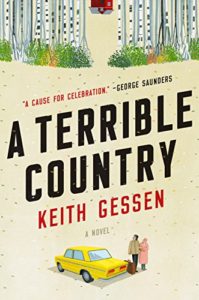
This week I read Keith Gessen’s new novel A Terrible Country after being convinced to pick it up by his interview with Lauren Goldenberg in Jewish Currents. I hadn’t realized until then that this book about a struggling Russian-American academic moving back to his birthplace of Moscow to take care of an ailing grandmother also contained a political awakening subplot. A Terrible Country is a rich portrait of a city in transition, an empathetic cross-section of Muscovites struggling to make a living under the crony capitalism of the Putin regime circa 2008, and a clear-eyed articulation of socialist ideals. Though traditional in form, it nonetheless surprised and ultimately moved me. (It also made me despair of letting my planned minor in Russian history fall by the wayside as an undergraduate). I recommend it.
–Jess Bergman, Features Editor
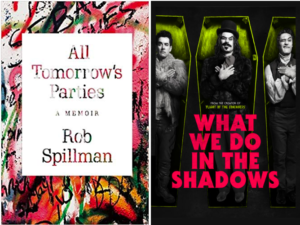
This week’s Things are disparate but excellent in their particular ways. The first Thing-and-a-half is Rob Spillman’s brilliantly-named memoir All Tomorrow’s Parties and the corresponding Spotify playlist. I’m normally a slowish reader but I tore through the book, and not just because I’m a bit of a Tin House junkie—there’s an earnestness, honesty and propulsive quality to both the language and the story that, hokey as it sounds, brought back a lot of my own earnestness.
The other Thing I Loved is What We Do in the Shadows. This was probably my fifth time watching it, and it gets better each time. I love it so much that I’d take it with me to a desert island, both for company and cheer and to brace myself for whatever bloody messes I might have to get into to survive. I don’t believe a greater buddy comedy vampire mockumentary exists.
–Miriam Kumaradoss, Editorial Fellow
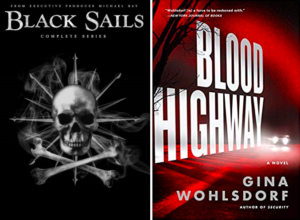
This past week, I traveled to visit sunny Austin (only 107 degrees!) and needless to say, stayed inside and read the whole time, when not watching telly with the family. In between episodes of Black Sails (historically accurate, according to my 18th-century historian father) and Outlander (decidedly less accurate). I read large sections of Gregory of Tours’ ultra-gossipy 6th Century CE History of the Franks, and I would encourage everyone to right this moment look up the historic rivalry between Queen Fredegund and Queen Brunhilda. Then on the plane ride back, I blew through Gina Wohlsdorf’s upcoming woman-on-the-run thriller Blood Highway, and was briefly sitting next to a guy in the airport who was reading a book about trains, so it was a nice planes, trains, and automobiles moment.
–Molly Odintz, CrimeReads Associate Editor
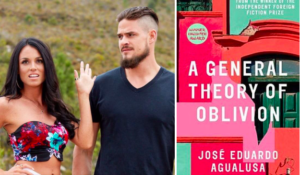
What have I been doing this week? What a question, considering that The Challenge is back. You remember The Challenge, right? The show in which MTV takes cast members from their various reality franchises and makes them complete in a series of creative athletic competitions, and also makes them live together (in a house) with no access to phones or books or music, so they have no recourse but to get drunk and fight? I know, it’s my favorite show too. This is season 32, in case you were wondering. I’m probably the only person in the world over 30 still watching it. Oh well!!!!
Just in case you imagine you’ve lost me completely to the dark side, I’ve also been reading José Eduardo Agalusa’s excellent novel A General Theory of Oblivion, about an Angolan woman who, while the fight for independence rages in the streets, traps herself in her apartment by building a concrete wall in front of the door. I understand the impulse, though she does wind up eating a monkey. Anyway, it’s only slightly less entertaining than The Challenge, which is saying something. Hey, have I mentioned my favorite show, The Challenge?
–Emily Temple, Senior Editor
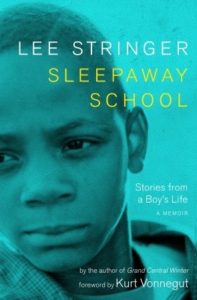
This week I finished up Lee Stringer’s Sleepaway School: Stories From a Boy’s Life where, unlike his better known Grand Central Winter, there is barely the ascension narrative I expected. Optimistic bits, yes, but a happy ending, no. Although you seem to breeze through his short chapters, you come to understand the heavy difficulties of attending an expensive, “rehabilitating” boarding school where you are the first welfare kid, ordered there by the courts for angry, violent outbursts. From his childish love for big words to his violent outbursts against the white, privileged children he was expected to thrive around, my heart melted for the adorable little boy on the cover of this book. As is often true when I read autobiographical novels out of order, it was tough to separate a ten-year-old Stringer’s suffering ego from the knowledge that he would fall into homelessness and crack addiction within the next decade of his life. Definitely not a feel-good book, but I would still recommend this one.
–Asha Simon, Lit Hub Intern
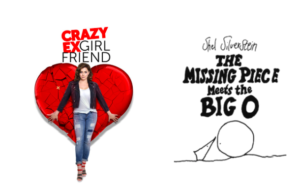
This has been a week of exploring how to be whole, which is to say I’ve been introducing my best friend to the show Crazy Ex-Girlfriend, a brilliant, self-aware musical comedy about mental health and happiness and love and so many other things (cue: the sexy getting ready song, the period sex song, the song about wanting your grown son to get the hell out of your house). This past week, I’ve also rediscovered the best Shel Silverstein book out there (sorry, but The Giving Tree kind of sucks), The Missing Piece Meets the Big O. It’s a simply (and beautifully) illustrated story about a “missing piece” just looking for a shape to fit into. There are shapes with too many missing pieces, and shapes that just roll on by. There’s a shape it fits into perfectly-until the missing piece grows. Do yourself a favor and pick it up because it’s not just for kids-it’s for you. I promise it’s an upper.
–Katie Yee, Book Marks Assistant Editor
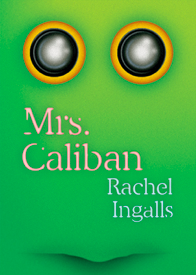
I started Rachel Ingalls’ bewitching novella Mrs. Caliban over coffee this afternoon, and I’m already dreading the approach of dinner, as I will probably be finished with it then. All the magic of this book may escape summary, but here goes: a bored, neglected house wife gets a second chance at living when a frog-monster from the Gulf of Mexico turns up at her backdoor one night. Rather than grab a knife, Mrs Caliban hands him celery and thus begins one of the sweetest love affairs of modern literature. Imagine if Muriel Spark wrote science fiction and you’ll get close to what this book feels like: a triumph of tone, a tale of loneliness upended.
–John Freeman, Executive Editor
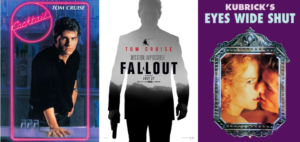
This week I’ve mostly been counting down days until the new Mission Impossible comes out, occasionally revisiting old Tom Cruise classics, including my favorite triple billing: Cocktail + Eyes Wide Shut + Cocktail again but slowed down a few ticks and with the creepy Eyes Wide Shut piano notes laid in over the soundtrack. If there’s a finer cinematic experience to be had out there, I’ve yet to find it.
–Dwyer Murphy, CrimeReads Senior Editor
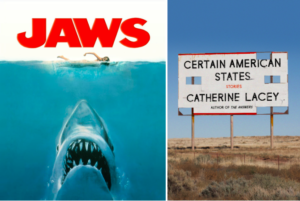
I’m deeply ashamed to admit that, prior to this past week, I had never seen the movie Jaws in its entirety. Worse still, I don’t recall ever even making an effort to see it. What a fool I was. My wife is a Jaws fanatic, a vocal evangelist for over twenty years now, and I’m glad to say that I’ve finally joined her ministry. Watching thalassophobic Sheriff Roy Schneider and co. battle that insatiable leviathan is a joy forever, and I look forward to berating anyone who has yet to experience it. In non-shark news, I also swam/floated in Lake George during a downpour and read Catherine Lacey’s soon-to-be published collection of short stories, Certain American States.
–Dan Sheehan, Book Marks Editor
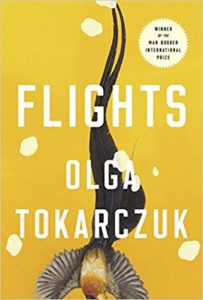
This week I find myself still reading Flights by Olga Tokarczuk. What, you say? That’s what you said you loved two weeks ago? Yep. It’s long and I have a toddler. But I still love it. I’ve also asked my father-in-law (who lives in Ireland) to send me Sally Rooney’s Normal People, just longlisted for the Booker, which is what I plan to love next.
–Emily Firetog, Managing Editor
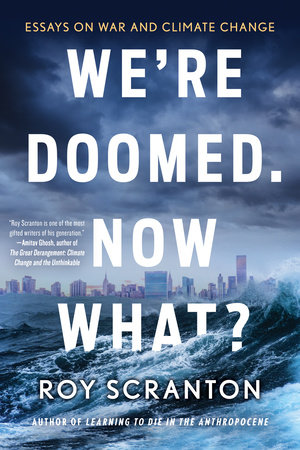
This might seem a little on the nose but I’ve been dipping into Roy Scranton’s essay collection, We’re Doomed. Now What? and have found it just the right register of pessimism and deep sadness, without quite indulging in abject hopelessness. Maybe it’s because I was born the same year as Scranton (1976), and we’re both members of the last grim cohort of true Generation X (I’ve been told 1977 marks the arrival of the Xennial).
–Jonny Diamond, Editor in Chief



















